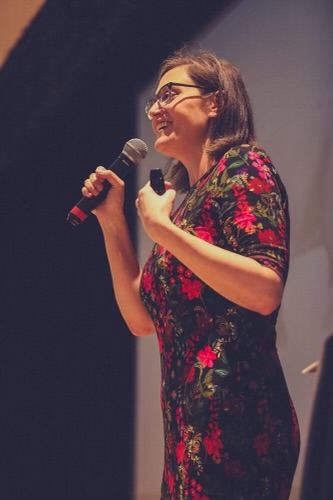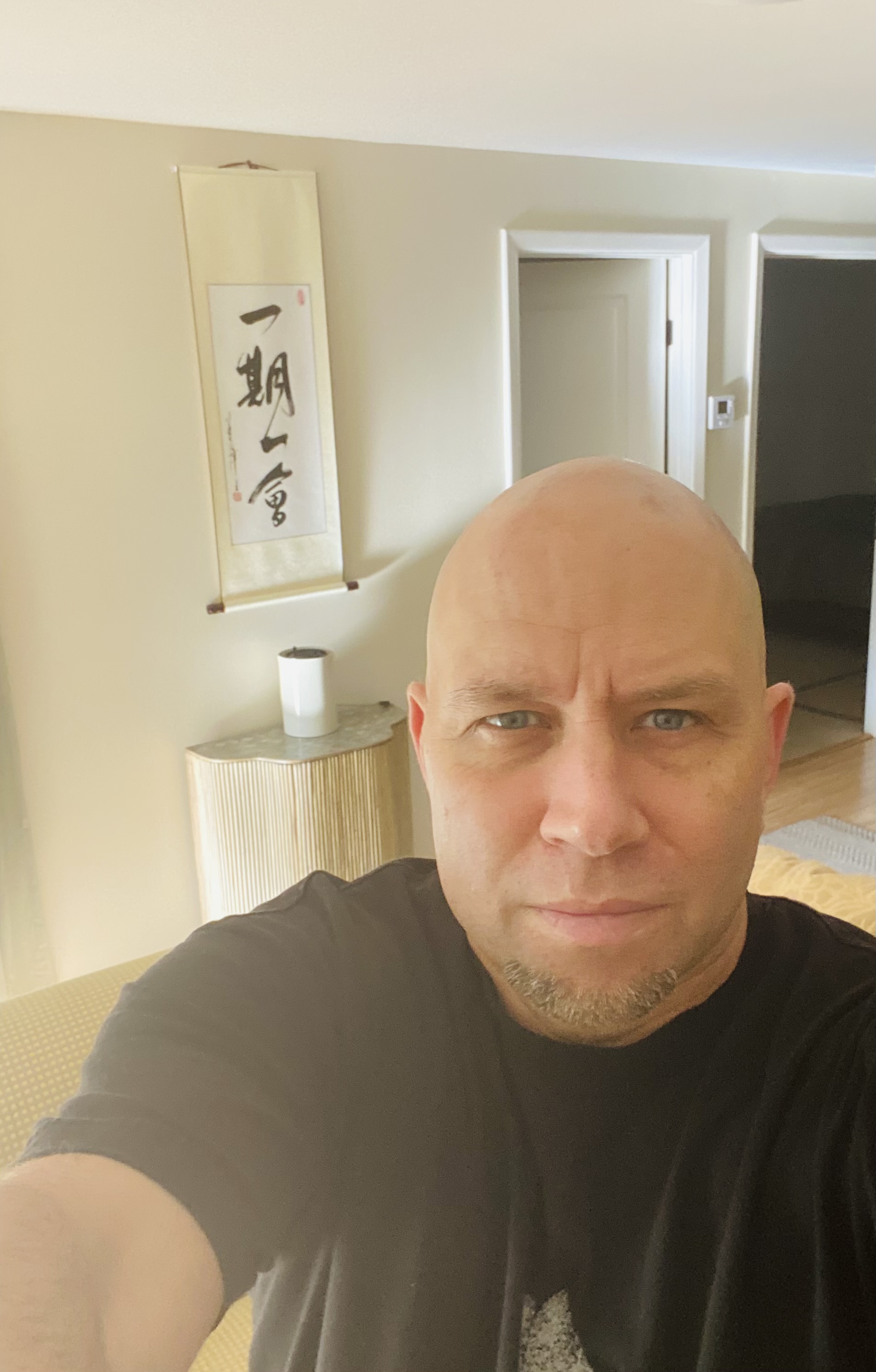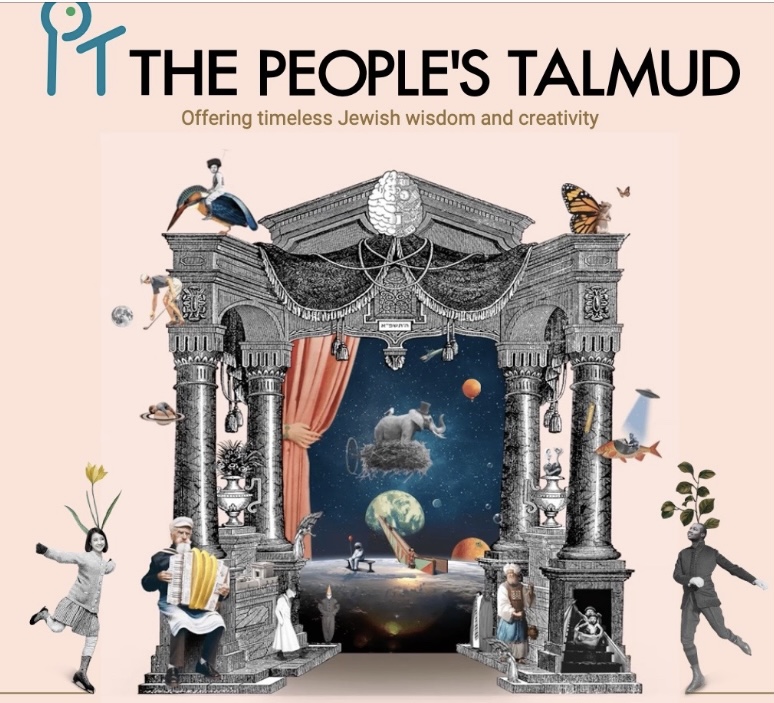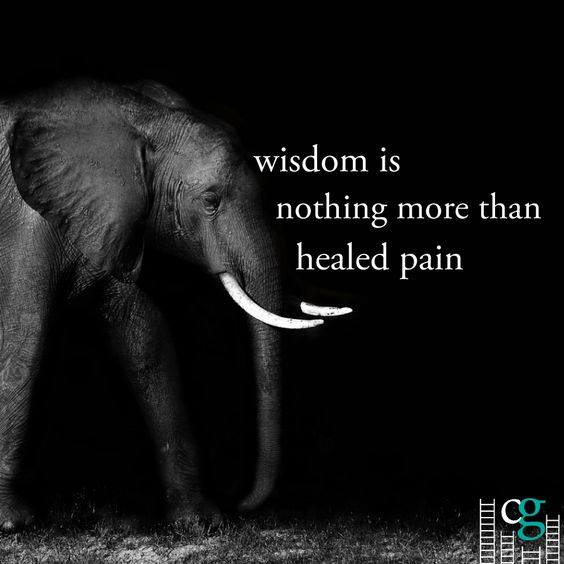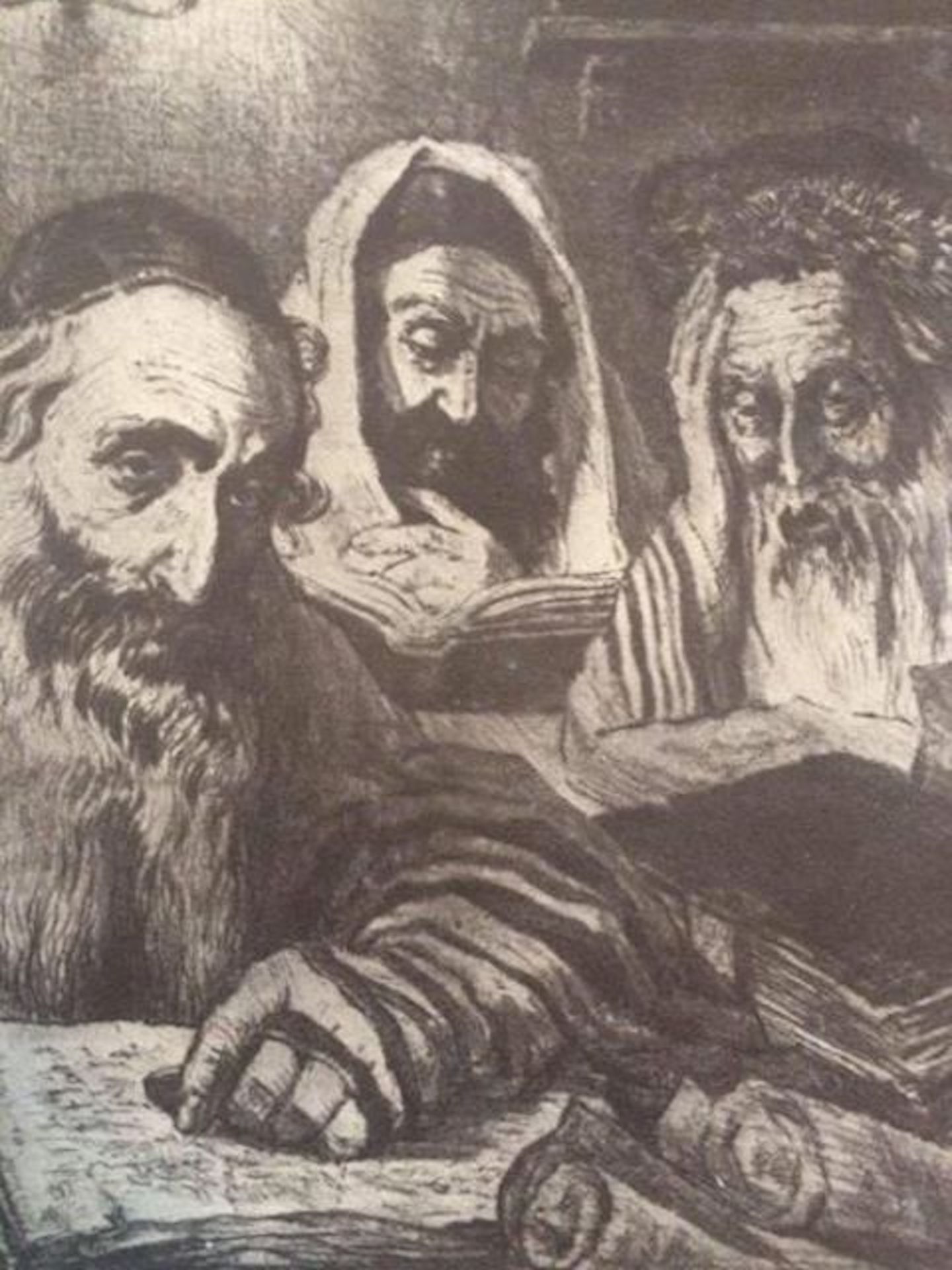Episode Transcript
[00:00:00] Speaker A: And so we talked about the first portal, and that story that you just gave of Rabbi Yaakov Yosef Opolnoi transfers beautifully into the second portal, which is the present moment, right?
[00:00:12] Speaker B: Yeah. Well, it's the present moment that we can. That we access through sensory awareness.
[00:00:20] Speaker A: Really the portal of the body.
[00:00:22] Speaker B: Yes. I mean, even the portal of the heart is present moment because you're offering your attention in the moment without some future agenda and without too much reference to the past, either. You're just being here for what is present now. So that's all. They're all, actually, all of them are present moment. But the tendency is for the mind to constantly bubble forth with thoughts about past and future.
The mind, left to its own devices, will carry us wildly in all kinds of ways. So if you have that wonderful heart offering of your attention, that's great, but it usually won't sustain itself very long unless you have some way to anchor your attention. And so that's what the second portal is about, is how do we anchor our attention so that it can remain connected and grounded in the present moment rather than swept away by the movement of the mind. And so the simplest way to do that, as you know, I'm sure, is to feel your breathing, to feel your body, to be in the senses, which is also kind of a paradox because we're aiming at this recognition of an identity with pure awareness, which is the least physical thing there is. And yet we can achieve that by really grounding ourselves in the physical.
[00:01:44] Speaker A: And there. There's an interesting teaching, I think, if you wouldn't mind talking about, which is the word ruach. Ruach is spirit. It's also a few other things that relate as a kind of bridge, right?
[00:01:59] Speaker B: Yeah, yeah. Ruach is spirit. But it is like in Bereshit, in the creation narrative in the Torah, it talks about the ruach elohim, merachefet al penahamayim, the spirit of the divine hovered over the waters.
And sometimes that word spirit is translated as wind and sometimes as breath. So the various words for soul, like ruach is one of the words for soul, and neshama is another word for soul. But neshma is like nishma, which is also a word for breath. So there's a connection, right, in the language between the movement of air and the essence of our being, which is consciousness. And this also, the way it's described in Bereshit of the spirit of the divine hovered over the waters, can also be understood as a practical instruction that to become present, we need to simply Bring our awareness to hover over what is not formed yet. In other words. In other words. But the waters are a metaphor because waters are fluid. Right. So before we put things in our mind, before we put things in categories and name things and understand causal relationships between things, there's just raw experience. There's sound and color and sensation. And to just let our awareness hover there and know ourselves as that hovering awareness, that's presence, that's meditation.
[00:03:41] Speaker A: That's got a beautiful depth to it. Thank you so much for that. That's really. I had never heard that teaching before, so that's new to me. I'm wondering if we could move to the third portal, which is recognition of identity formation.
[00:03:55] Speaker B: So for. For many of us, that kind of recognition or realization is something that happens spontaneously through the practice of the first and second portal through just be sincerely from your heart letting go of other agenda. But from your heart offering your attention to this moment and grounding it in your senses and the flow of your breathing. There can then arise this natural sense of being, the awareness, as opposed to being the self that we normally think we are, which is bundle of thoughts and feelings in a body.
But what I like to do is when we enter into a meditative.
When we enter into a meditation practice to bring that recognition to mind, at least for a moment, to say to ourselves, oh, I am this awareness. And this awareness, unlike the body, doesn't have any form, it doesn't have any shape, it doesn't have any boundary. It's just an open field, and I am that. And so that's an example of using words and language and a thought to encourage that realization that should. Should blossom on its own over time, but can be nurtured through. Through saying it and through noticing it on purpose.
[00:05:25] Speaker A: So close to us, we cannot recognize it. Right. I mean, it's Lama Govinda in the Way of the White Cloud, which was excerpt. It is close to us, but we are far from it. Meaning the principle or God. It is close to us and we are far from it. So all pervasive. I mean, another way of looking at it. Yeah. Is that form is emptiness and emptiness is form. That they're. They're a kind of singular expression expressed. Now.
I don't know. My mother was not Jewish and my father was Jewish and I would. Grew up as a Reform in the Reform movement. But one of the things that I'd come across relatively later in my life was the mystical teachings of kind of like Jacob's Ladder and what that was about. And I'M just wondering if you could discuss or talk a little bit if you're familiar at all with the notion of prayer and kind of like the. The spiritual or kabbalistic teachings of Jacob's Ladder.
[00:06:27] Speaker B: Well, it's interesting that you're bringing that up, because Jacob's Ladder is. The story comes in this week's Parsha. So every week there's a little portion of the Torah that's read.
And the name of this week's parsha is Parshat Vayeze. Which makes sense, right? Say, is after the two brothers have the fight or. No, it's not a fight, really. It's Jacob tricks Asav out of his birthright, dresses up like him, and gets the blessing from his father Yitzchak, and so on. And then by yetzeh means, he went out, he left because he was running away from his brother. And on his way to Haran, which is the origin of place of his family, where Abraham came from, he stops for the night somewhere, and that's where he has the vision of the Ladder. And that's Jacob's Ladder. So that's in this week's Parsha. Parsha, Parshat vayetze. I did a little piece on this earlier this week, because I always teach on Sundays. And part of that was the idea that in the vision he had, there were angels going up the ladder and angels coming down the Ladder. And what does that mean? What are these angels going up and down? So. Well, there's a tradition that everything that happens in the world is, as we started this conversation, hashkacha pratit, meaning that everything is the result of spiritual forces, and the root of all spiritual forces, what we call the divine, is causing everything to happen. Those are represented by the angels going down the Ladder. They're carrying the decrees from heaven into what's going to happen on earth. Right. But then there are also angels going up the ladder. So what's that about? Well, there's also a tradition that says that everything we do creates an angel. So if we do good things, we create positive angels. You do bad things, you create negative angels that are going to cause chaos and destruction. So from that point of view and that idea, it's not that we have no control over every. Over anything, but rather we have control over everything because everything we do is causing. Is creating these angels.
[00:08:41] Speaker A: We're in the mix.
[00:08:42] Speaker B: Yeah, we're in the mix. And then those angels are creating the effects in the world.
And yet at the same time, how are we able to do anything? Because the angels coming down the ladder gave us the ability to do it. So it creates a kind of a paradox, a circular paradox, which breaks down our normal understanding of ourselves as separate.
[00:09:04] Speaker A: Yep.
[00:09:05] Speaker B: Like, oh, are we causing it? Well, it doesn't make sense to say you're causing it unless you're. Unless you're separate from it. Like, there's that, and I'm here and I'm causing that. But if you see yourself as part of one reality.
[00:09:17] Speaker A: Yeah, yeah, yeah.
[00:09:19] Speaker B: Which. In which the angels are both going up and coming down the ladder, then you get us. Then you get a glimpse which is kind of transcends our normal linear thinking, but you get a glimpse of what reality is, which is actually one reality unfolding in all this infinite richness. And so when. When Jacob awakens from his dream after having this vision, he says, yesh hashem bamakom haze. The divine is in this place.
And I didn't even know it. I didn't realize that this is it. But it's interesting that that realization comes at a time where he's running away from something because he just had all this family drama that was really heavy. You know, his brother was gonna actually wanted to murder him. I mean, it's hard to imagine anything worse, you know, worse drama than that, you know, your brother or sister or whatever coming to murder you.
And he was running away to.
What happens later in the story is he gets swindled by his uncle. So, you know, all of this other drama happens. And yet between the two dramas, he stops in the night and he puts his head down to the stone.
Well, what does that mean? The stone. Puts his head on. A stone's not a good pillow. Why would you put your head on stone? He put some leaves or something, but the idea. But it's all metaphor. So the stone is still right. The stone is like. It's not blowing around like your mind. So the hint is. The hint is that the mind, which is normally blowing around with all this drama, finally becomes still. And he finally awakens to the reality of the moment. And the reality of the moment is this is the divine right here. And so then he says, this is the portal to God. This is the gateway to heaven.
[00:11:12] Speaker A: And he says, and I didn't even know. Which is. That's his own spiritual awakening.
[00:11:16] Speaker B: It's set in metaphor.
It's all about metaphor and imagery, which is what Judaism is all about. It's not like it's saying it in a plain, technical way, but really, if you look beneath the surface, it's that Popping out of the drama of our lives to recognize the divinity of the moment.
And. And then he's nourished by it and he goes for. He goes back into the drama. But he is able to make some positive changes from that. Right. Because eventually he goes and he makes peace with his brother and he becomes Yisrael instead of. His name gets changed from Jacob to. From Yaakov to Yisrael, which means one who strives for the divine or wrestles with the divine, however you want to translate it.
[00:12:01] Speaker A: One of the things that I'd like to draw out here is how our Western culture treats, entreats, and pathologizes spiritual gifts. Spiritual gifts, either hearing voices or seeing visions in Torah. It's immediately pathologized in our culture. But when it is tempered, when heaven and earth are in balance, a necessary component of our guidance and wisdom could potentially come from hearing voices, seeing visions. Then the nature of your thoughts about. There's a place for medication, there's a place for the treatment of mental health distress.
When the spiritual is too out of balance and it impairs our relationships and daily functioning. Then treatments that necessarily needed this objective look at the gifts of spirituality and of existential crisis, which usually bears out these things of sort of hearing voices and seeing visions.
[00:13:11] Speaker B: Yeah, well, I think that's a. It's a. It's a challenging one. I think it's always been challenging, not just in modern times where we have the idea of mental illness, but over 2,000 years ago, there was a transition that happened between Judaism being a tradition of prophets to becoming a tradition of rabbis, to transitioning from those who heard the word of God literally spoken to them to those who read about other people hearing about it and then talking about it and then coming up with ideas and decisions. Both groups were leaders. They were both coming, making decisions for.
Well, to. Depending on what kind of power they had at various times in history, but what they were attempting to do was to lead the people. And part of that leading was practical instructions like do this, don't do that. But one group, beginning with the tradition of Moses, did it through hearing voices, a voice telling them what should happen. And the other group did it by having conversations. Not just one prophet hearing a voice, but rather a group of rabbis getting together, reading, thinking, talking, having conversations, and coming up with something that way. So it's a shift in process. And I think to myself, this is just my own speculation, but I think that probably the reason it shifted like that. Why would it have shifted? What was the reason it Shifted. I imagine that it shifted because.
Because the prophetic model is just too difficult. You're going to have some really powerful, important, useful stuff come through, people who claim to be prophets, but you're also going to have all kinds of crazy stuff come through. Even in the Torah itself, it gives a qualification for how you can tell a real prophet from a false prophet. But the problem is you wouldn't be able to use that criteria until long, long after, like, way in the future, maybe after the prophet died for a few hundred years or more. Because qualification says is look and see whether what they say comes true or not. Well, you can only do that in the immediate right most of the time, I imagine they really had no way of determining. And so that must have been a problem. There must have been all kinds of chaos created by that type of system. Whereas when you, if you create a more rational system of people like, okay, here's our constitution, the Torah, and we're going to be. We're going to be lawyers, we're going to be judges, and we're going to figure stuff out and have a legal process by which to make decisions.
So I think that it's always been problematic. So it's not just, not just something today where we have the idea of mental illness now. We just have a way to pathologize certain types of experiences.
And so therefore, I think if we want to not throw away the baby with the bathwater, if we are able to penetrate through conceptual constructs we have around the phenomenon, the phenomena of people hearing voices and seeing visions and so on, then we have to have, we have to create a new context within which to support people who are having those experiences. And we have to give them the tools to not be destroyed by those experiences. Because I, I mean, I haven't had a lot of experience with it, but I have had some contact with people who have had very, very powerful things that they'd be given medication for if they went to a psychiatrist.
And yet my sense is that there is a way, I hope that there's a way to train people or help people or coach people to pull out what's useful in those experiences and not hold it in such a heavy, grasping kind of way.
[00:17:13] Speaker A: Yeah, yeah.
[00:17:14] Speaker B: Because the tendency when you have that is, especially if it's combined with other kinds of neurotic things like paranoia, you know, that like, no one understands me, no one, no one knows what I know. And, you know, and then to kind of make a big inner drama about it and create all this tension around it. Instead of just like taking a deep breath. Okay, this is the vision I had. What does it mean? Maybe it's about kind of combining the yogi or the Zen master with the prophet with the rabbi, like, really. Really to combine them and make them integral. Because the rabbi part says, here's one opinion, here's another opinion. Right. The rabbinic attitude is not like the Moses attitude. It's not like Hashem has said this. No, the rabbinic attitude is Rabbi Yossi says it this way and Rabbi Yoshua says it this way. And so we. We have a conversation and we think about it. We go slow. We have a process. You know, it's.
[00:18:17] Speaker A: That's wonderful. And I love. I love the space to be able to introduce this topic because there's a movie that I'm very. A documentary that is very important to be called Crazy Wise. And it talks about indigenous culture's view of these markers of, say, what we call psychosis or paranoia or other. Other markers of mental health distress in the west that are immediately medicated. They're their markers of sensitivity, of a spiritual sensitivity.
[00:18:49] Speaker B: Right.
[00:18:49] Speaker A: And an elder comes and gives them the narrative that you are special. You have a special sensitivity. More importantly, they're told, you have a calling to the community which will help you through birth, this process of your spiritual gifts into a kind of healer, leader or shaman. And that message, you're given an exalted position of a healer, leader and teacher, a conduit to something greater than yourself. It's a very important message. I know we shared this book, Aria Kaplan's Jewish Meditation. I read many years ago books he used to talk about the schools of prophecy in Israel that when. During this time of when sort of the prophets were regarded highly, there were schools where you would cultivate the ability to become a worthy or sacred vessel to receive prophecies.
[00:19:43] Speaker B: I have the books right there. I could pull them down, looking it up.
But he does refer to sources, if I'm remembering correctly, in order to support the idea that there were thousands of individuals and prophecy schools that people attended. So it makes sense that there were a lot. That there were elements to the prophetic tradition that fell away, since the whole prophetic tradition fell away.
[00:20:10] Speaker A: And that. That was just to sync it with our conversation. That was all that was in. That was about meditation and about the importance of Jewish meditation.
[00:20:20] Speaker B: Right.
[00:20:21] Speaker A: In conjunction with cultivating one as a sacred vessel for prophecy.
[00:20:25] Speaker B: Right.
The point of those books is to really give a full. As full of survey as he can of the meditation. Meditation traditions within that Jewish Hebrew lineage. So it goes all the way back. There are actually two books. There's meditation in Kabbalah and there's meditation in the Bible. So the Bible one is the one that goes back and talks about those prophetic schools. And I think the reason why he did that at that time, when he was writing those, which was, I don't know, like the early 80s or the late 70s, he was writing. I think that was a time when the idea that meditation and spiritual practice would be part of Judaism was outlandish to most American Jews, even ones that were Hasidic and steeped in Jewish spirituality.
Because even Hasidism had kind of regressed into a.
Into something really not different from ordinary Orthodoxy, except for in certain customs, like there were Hasidic customs, Hasidic songs, and also certain texts like the Stories and the Tanya, which was a Hasidic text that was the Bible of Chabad Hasidism. But in terms of actual transformative practice that are different from just going to shul and just doing the davening, you know, it really didn't exist, and it was outlandish to people.
But since that time in the 80s, it's become much more, much, much more widely known and understood and also incorporated into all the different branches of Judaism, from Orthodox to Reform to Reconstructionist. Everyone acknowledges that. And yet, even with all that acknowledgement of transformative spiritual practice in the Jewish world, it's still very, very rare that you'd go to a synagogue and experience it on a Shabbat, maybe 30 seconds of it, but it's still very rare. That just brings it back to why I do what I do, because it's really not just about giving individuals the chance to practice and experience something helpful, but also to help the culture shift.
[00:22:37] Speaker A: So, Rob, Brian, I'm just wondering, could you summarize and talk a little bit about what you offer through Torah, of awakening and sort of the mission and what you want to reach and how people might reach you if they're Jewish?
[00:22:51] Speaker B: Sure, yeah, it's very easy.
We gather six days a week. So at this point, we're not gathering on Shabbat, just honoring that boundary around using computers and devices. On Shabbat, we're doing six days a week on Zoom.
The meetings are at 10:30am Pacific Time, 1:30pm Eastern Time.
Members will gather, and I'll guide folks in a brief teaching and a particular Hebrew chant that's connected to the qualities of the Hebrew letters and the spherote of the tree of life, of Kabbalah, based on what day of the week we're in based on what season we're in and what month we're in, what holiday we're near, and so on. So there are a lot of different chants that we'll do do to start off the meditation and then I'll guide people briefly in those three portals and we'll spend about 15 minutes in silence and then we have a little healing prayer at the end that people can put in names. And we also have an opportunity for folks to say Kaddish on Sundays. So that's a half hour session almost every day on Sundays it's a longer hour long session which includes more learning on the parsha, the Torah reading of the week, which gets into the teachings that are awakening awareness, meditation based teachings that I try to pull out of the weekly parsha to offer people.
And so it's easy to try it out though. It's set up as a membership so people can try the membership free. It's not expensive, it's $36 a month, but it's also available to anyone. No one's turned away. So if you say, oh, I really want to be part of this, but I can't afford $36, so whatever. So we work it out. Whatever you can do. I feel called to this important work that needs to happen. I believe in the Jewish world.
Every time that I'm leading in any of these sessions, I'm trying to give little pointers, little hints, little verbal instructions to help people connect with doing meditation as effectively as they can. For many people, I should say it's helpful to have that instruction there. And that's really what I offer.
But then there are also a bunch of different levels of study. So if you want to go beyond that, if you've said, okay, that's wonderful, I want to go deeper than that.
So then we have a whole course of study with that's based on the 22 Hebrew letters in the 10 spherote of the tree of Life, of Kabbalah, in which we use visualizations and body movement and Kavanaugh, that means like affirmations that we say in English and so on to connect with all the different qualities of presence.
Because meditation, even though it's very simple, has many, many wonderful qualities that come out from it. So for example, here are a few qualities.
Most people will know that obviously a heartfelt quality, a loving kindness quality is part of what emerges naturally from meditative state. But also being more decisive, being able to have, being able to have a clear boundary of what you're doing and what you're not doing. Like that kind of sense of focus is also a quality of presence.
Another quality is gratitude, appreciation for everything we're receiving now in this moment, to exist, as we talked about that before, with the serendipity of being.
Another one is patience. Another one is courage. Another one is willingness to be open, to feel our feelings fully. Then we incorporate it into traditional davening practices, which have been I've altered them in order to make them more economical, in a sense, less words, but also keeping the traditional structures and sense of the traditional flow of the prayers in the morning and afternoon and evening services, using the tools available to us in Kabbalah, and also just simple meditation itself.
So that's all available to people who are interested.
[00:27:16] Speaker A: Brian, thank you so much for this time.
[00:27:18] Speaker B: Thank you so much, Joel.
